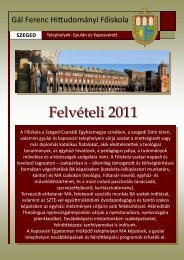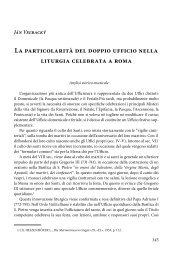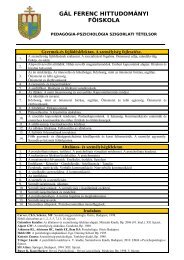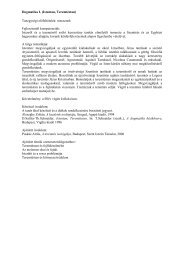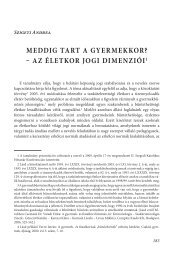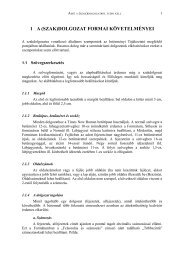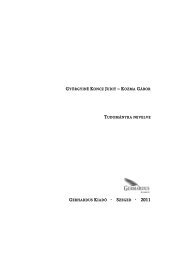Deliberationes - Gál Ferenc Hittudományi Főiskola
Deliberationes - Gál Ferenc Hittudományi Főiskola
Deliberationes - Gál Ferenc Hittudományi Főiskola
You also want an ePaper? Increase the reach of your titles
YUMPU automatically turns print PDFs into web optimized ePapers that Google loves.
abstracts<br />
Gábor Kozma: An Innovative Environment? About the Scientific<br />
Possibilities and Social Impossibilities of Education 1<br />
How is it that despite the manifold developments of 20 th –21 st -century pedagogy, in<br />
today’s society everything that is a proclamation of love and benevolence is considered<br />
to be suspicious? This does not support the superfluity of pedagogy; to the contrary, it<br />
has to be made the instrument of an innovation that extends to the whole of society. For<br />
all the products of pedagogical innovation, the increasing difficulties of discipline in the<br />
family and at school are present. It is essential that the achievements of innovation also<br />
appear on the level of the system of education, not only in individual products, since<br />
the latter is the particularity of economic efficiency and is overshadowing the efficiency<br />
of education. Competence-based education also requires critical examination as an<br />
influence that contributes to the elimination of traditional (e.g. Christian) educational<br />
objectives, in compliance with the demands of a consumer society. Further questions<br />
are raised about the “anti-instrumentalization” of public education, the ostracism of<br />
discipline from higher education, the chaotic consequences of the Bologna system as<br />
well as the unplanned nature of pedagogue training.<br />
Géza Kuminetz: Free choice of conjugal love and of<br />
married state of life<br />
This study searches for an answer to the vexed question of what gives marriage its<br />
essence and within this essence where is love located? Marriage has four roots that cannot<br />
be retracted and yet they are interwoven: these include sexus, eros, genus and ethos.<br />
Thus eros, i.e. love constitutes an essential characteristic feature of marriage inasmuch<br />
as it meets the ethical requirements of sexuality in a person that does not exclude the<br />
requirement of maintaining the human race. Consequently, conjugal love starts with a<br />
sexual attraction, and materializes in a definite commitment to the establishment and<br />
maintenance of a stable and indissoluble community of life.<br />
At the same time conjugal love, since it is not fully submissive to willpower, is not an<br />
establishing cause for marriage, it presents as a most distinctive and desirable motive.<br />
Moreover, love itself does not affect the will in an absolutely deterministic way. Due to<br />
this, any listing of love among the essential ingredients of connubial agreement may lead<br />
to misunderstanding; nor should it be considered as a legally irrefutable fact.<br />
In conclusion, love is the greatest motive for a human being to make an irrevocable<br />
1 The lecture version of this paper was given at the conference entitled The Hope of Pedagogy – The<br />
Pedagogy of Hope on November 20 th , 2009 at <strong>Gál</strong> <strong>Ferenc</strong> Theological College, within the frame of the series<br />
of events of the Feast of Hungarian Science 2009.<br />
262




